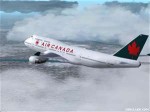US v. Canadian airlines – why aren’t they all food allergy-friendly?
[Thank you to Adrienne Walkowiak as the primary author of this post]


Are the friendly skies getting more food-allergy friendly? It depends where you’re traveling.
Canada’s two major airlines, WestJet and Air Canada Airlines, recently unveiled exciting, progressive new food allergy policies, which many in our community hope will become precedent among US airlines, as well.
WestJet, to my knowledge, is now the first airline to carry adult and child-sized EpiPen auto-injectors on their entire fleet of planes, which is a huge victory for food-allergic travelers. In the event of an allergic reaction on board, these EpiPens will, literally, be lifesavers.
Why aren’t any of the US airlines doing the same?
It’s standard operating procedure to have defibrillators on all US airplanes as lifesaving devices. Now, we need airline executives to recognize the significant benefits to stocking their fleets with EpiPens for the same reason. Need I mention that EpiPens take up much less space and are much easier to operate than a defibrillator?
The Canadian airlines are implementing other allergy-friendly protocols, including creating nut-free “buffer zones” around nut and peanut allergic passengers and serving nut-free alternatives to the stereotypical bags of peanuts on flights. Additionally, the crew now makes announcements to alert fellow passengers to food-allergic travelers on board, asking individuals to refrain from opening products that contain nuts/peanuts while on that flight.
The efforts of these two Canadian airlines represent significant progress, and it’s disheartening to see that US airlines have not implemented similar food-allergy policies or protocols en masse, despite the fact that millions of people have known food allergies in this country.
In fact, US food allergy “policies” differ greatly among the various carriers. Some US airlines offer “buffer zones” around a food-allergic passenger with advanced notice; some will serve a non-peanut snack on a particular flight with advanced notice, and some airlines have stopped serving peanuts altogether. Further, some US airlines offer gluten-free and vegan (dairy and egg-free) menu options. But which carrier is doing what? Is it enough?
And where are the EpiPens?!!
Of course, no airline in the US or Canada will guarantee a flight that’s completely free of food allergy triggers, partly because they can’t control the snacks and meals that other passengers bring on board, but knowing that travelers may be exposed to allergy-triggers on a flight, US airlines should seriously consider implementing some of the tactics that the Canadian airlines have wisely incorporated.
I strongly believe that US-based airlines should implement more stringent food-allergy policies on their flights. They should carry EpiPens. They should all eliminate peanuts and nuts from their snacks and meals, and make available snacks and meals free of common food-allergy triggers, such as nuts, peanuts, dairy and gluten.
Many travelers have heart conditions, and our nation’s airlines strive to keep them safe with defibrillators. Now, knowing how many people have food allergies – which can also be serious and life-threatening – shouldn’t they step up their protocols to keep this population safe as well?
I’m curious to hear about your experiences on various airlines. Have you found a particular airline to be especially accommodating? Are there airlines that you avoid because they weren’t allergy friendly? Please click on Comment or Reply below to share your thoughts.
And as always, please remember to go to the main AllergyEats site (www.allergyeats.com) and rate any restaurants you’ve recently dined at. The power of AllergyEats is driven by you. The more you rate, the more valuable AllergyEats becomes for all of us!


Comments